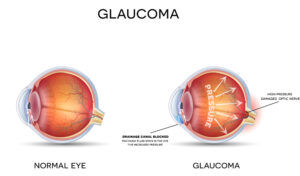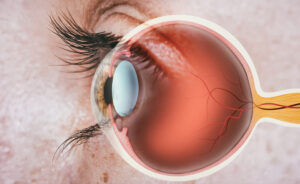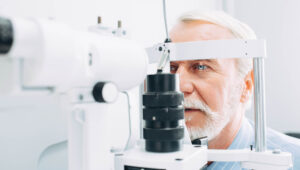What Is The Best Glaucoma Test For Early Detection?
Around 2% of UK adults aged over 40 are affected by glaucoma, and it’s one of the leading causes of blindness worldwide. Like many eye diseases, it often shows no symptoms in its early stages. Because of this, it’s thought that a huge number of people, up to half of those affected, are undiagnosed. That’s why regular eye exams are so important. But what’s the best glaucoma test? Let’s take a look at the options.
What Is Glaucoma?

Glaucoma describes a group of eye diseases that cause irreversible damage to the optic nerve. There are 3 main types of glaucoma:
- primary glaucoma, either primary open-angle glaucoma (POAG) which is the most common type, or primary angle closure glaucoma (PACG)
- secondary glaucoma, which is where the glaucoma is a side-effect of another medical condition or trauma to the eye
- developmental glaucoma, which affects babies and children.
Who Is Affected By Glaucoma?

Primary glaucoma becomes more common as you get older, with rates rising from 1 in 100 people aged 40, to 1 in 33 aged 60, and around 1 in 12 of those aged 80. Your family history can also have a significant effect on your chances of developing glaucoma, with the risk being 4 times higher if you have a close blood relative with glaucoma.
Symptoms of Glaucoma
In most cases, glaucoma creeps up on you without presenting any symptoms at first. You might feel a headache or pain behind your eyes caused by the pressure in your eye, or notice a halo appearing around lights. The first significant change you’re likely to notice is loss of peripheral vision. While treatment can slow or even stop glaucoma in its tracks, the damage can’t be reversed, which is why we put so much emphasis on having your eyes checked regularly.
Types of Glaucoma Test
Regular eye exams with advanced retinal scanning are the only way to detect signs of glaucoma early, when it can be treated before it has a chance to cause sight loss.
Optomap Retinal Exam

Retinal imaging is a quick and easy way for our optometrist to get a detailed picture of your retina at the back of your eye. The Optomap ultra-widefield imager is easy to use – you simply sit in front of the machine while it takes a picture of your retina. The results are instant and allow our optometrist to look for signs of damage to the optic nerve.
OCT Scan
OCT, or ocular coherence tomography, is an advanced scan of your eye that shows the different layers of the retina. Like the retinal scan, it’s quick and painless, with instant results. It’s one of the most important tools we have for detecting minute changes caused by glaucoma while it’s still in its early stages and no other symptoms are detectable.
Book Your Eye Exam

If you think you could be at risk of glaucoma, or it’s been 2 years or more since your last eye exam, contact our opticians in London, to book an eye test with OCT and Optomap scan.
